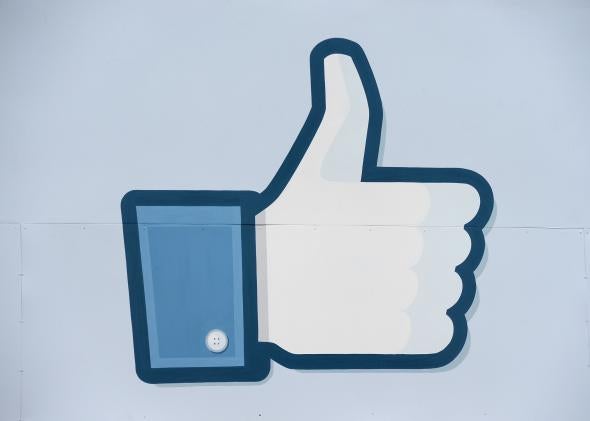On Wednesday, drag queens and similar performers began complaining of problems with their Facebook profiles. Artists from across the country reported being forcibly logged out of their accounts and informed that they would need to update their profiles with their legal names in order to lift the suspension.
According to New York City-based drag performer and Outward contributor Miz Cracker, at least 20 of her drag colleagues have had their profiles challenged over the last three days, with notices continuing to be issued at the time of writing.
Cracker described her experience in an email:
I found out that my account had been suspended on Wednesday night, right in the middle of a show, when a fellow queen texted to ask “Why is your Facebook profile gone?” Facebook was letting me know that I had a choice: I could either select a name they liked, or lose touch with the contacts, creative content, and memories that my name has earned me over the years.
Many artists, including Cracker and Sister Roma—a member of the San Francisco-based activism and performance group Sisters of Perpetual Indulgence—acceded to Facebook’s directive; Roma switched her profile to her birth name, Michael Williams, with her drag name listed as an alias in parentheses. Others have set up new profiles with truly fake names as an act of protest or deleted their accounts entirely.
According to a Facebook spokesperson, the step was taken to bring users in line with the company’s “real name” policy, which stipulates that “people use their real identities” and “provide their real names, so you always know who you’re connecting with.” The rule is designed to “keep the community safe.”
Facebook added, in a statement, that performers have other options if they’d like to feature their drag names on the platform:
If people want to use an alternative name on Facebook, they have several different options available to them, including providing an alias under their name on their profile, or creating a Page specifically for that alternative persona. As part of our overall standards, we ask that people who use Facebook provide their real name on their profile.
While the “real name” rule has long been in place on the social network—for everyone but “verified” celebrities, anyway—many queens note that they’ve used their drag names in their profiles without incident for years. So the question is, why bother them now?
A source at Facebook explained that, in general, profile pages are only reviewed when “a member of the Facebook community reports it to us,” adding that, “In these instances, the profiles would have been reported to us.” Given the high number of queens being “hit hard,” as Miz Cracker put it, someone has clearly made a serious project of reporting drag profiles to (or perhaps from within) the company.
Speculation about the motivations behind the purge ranges from homophobia to money—some queens point out that Facebook stands to gain financially if artists switch from personal profiles to Fan Pages, which often require paying for post promotion to make them worthwhile. In any case, performers are not taking the crackdown lightly. Sister Roma started a Twitter hashtag, #MyNameIsRoma, as a way of illustrating that for many queens, their drag name is more “real” than the words on their birth certificate. A coalition of performers has started a Change.org petition to challenge the policy, writing that “although our names might not be our ‘legal’ birth names, they are still an integral part of our identities, both personally and to our communities.” They also point out that maintaining a drag name in public is often a matter of safety:
Victims of abuse, trans people, queer people who are not able to be safely “out,” and performers alike need to be able to socialize, connect, and build communities on social media safely. By forcing us to use our “real” names, it opens the door to harassment, abuse, and violence. Facebook claims that the restriction on using “real” names “helps keep our community safe,” but in fact this restriction enables our communities to be attacked and degraded, both online and off.
The petition’s focus on “identity” highlights the complicated meanings of drag: Sometimes it’s just a job, but more often it’s a deeply held part of a person’s self-conception and perhaps even representative of a point on the transgender spectrum. (For more on the many uses of drag, see Cracker’s feature story from earlier this summer.) Performer Honey LaBronx expressed her dismay along these lines in a Facebook post on Friday:
I gotta say, it’s a REALLY creepy feeling seeing my profile pic next to [my birth name]. Out of drag? Sure. That’s who I am. But to be called by your boy name when in full face? … I don’t know if non-drag performers can really understand how degrading it is. Seriously it’s a step above feeling like a wet cat.
It is striking that a company that earlier this year made news for allowing upward of 50 gender-identification options would overlook the fact that for many queens, a drag name is far more than an “alternative persona.”
While Facebook is technically justified in putting drag queens through the “real name” ringer, one hopes they might be willing to consider how “realness” could be a relative term. After all, as Miz Cracker points out, “Cracker is real enough to earn more cash than some New York City households, publish articles, bruise someone’s face during a sloppy cartwheel, take lovers—[and yet] she isn’t real enough for Facebook.”
